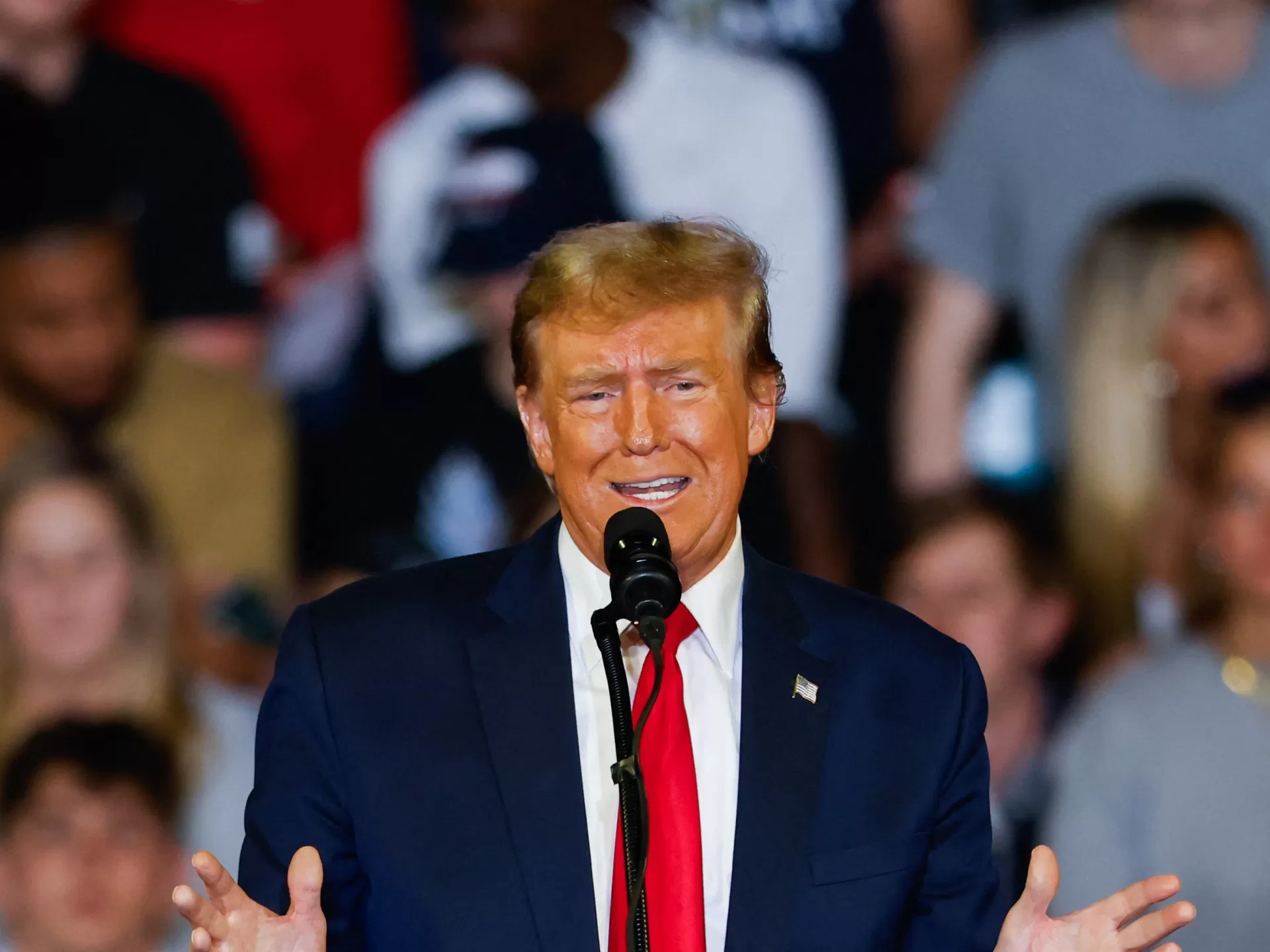The justices on Wednesday put on hold the criminal case being pursued by Special Counsel Jack Smith and will review a lower court’s rejection of Trump’s claim he cannot be prosecuted for actions aimed at reversing his loss because he was president at the time.
The court will hear arguments in late April, with a decision likely no later than the end of June.
That timetable is much faster than usual, but even if the justices deny Trump’s immunity bid, it is not clear whether a trial can be scheduled and concluded before this year’s presidential election.
Trump is the frontrunner for the Republican nomination to challenge Joe Biden, a Democrat, in the November 5 election.
The former president’s lawyers have sought to put off a trial until after the vote.
If Trump regains the presidency, he could seek to use his powers to force an end to the prosecution or potentially pardon himself for any federal crimes.
The Supreme Court, in an unsigned statement, said it will consider a single question: “Whether and if so, to what extent does a former President enjoy presidential immunity from criminal prosecution for conduct alleged to involve official acts during his tenure in office.”
The question is an untested one in US jurisprudence because until Trump, a former US president had never been charged with a crime.
The case once again thrusts the nation’s top judicial body, whose 6-3 conservative majority includes three justices appointed by Trump, into the election fray.
Trump, in a post on his social media platform, hailed the court’s decision.
“Without Presidential Immunity, a President will not be able to properly function, or make decisions, in the best interest of the United States of America,” Trump wrote. “Presidents will always be concerned, and even paralyzed, by the prospect of wrongful prosecution and retaliation after they leave office. This could actually lead to the extortion and blackmail of a President.”
There was no immediate comment from the special counsel’s office.
Smith was appointed by US Attorney General Merrick Garland in November 2022. In August 2023, Smith brought four federal criminal counts against Trump in the election subversion case.
A March 4 trial date was postponed as Trump pressed his immunity claim, with no new date yet set.
Smith’s charges accused Trump of conspiring to defraud the US, obstructing the congressional certification of Biden’s electoral victory and conspiring to do so, and conspiring against the right of Americans to vote.
The charges also claim Trump and his allies made false claims that the 2020 election was stolen and devised a plan to use false electors to thwart congressional certification of Biden’s victory. Trump also sought to pressure then-Vice President Mike Pence not to allow the certification to go forward. Trump’s supporters attacked the Capitol in a bid to prevent the certification.
Trump last October sought to have the charges dismissed based on his claim of immunity.
US District Judge Tanya Chutkan rejected that claim in December.
During January arguments in his appeal at the US Court of Appeals for the District of Columbia Circuit, one of Trump’s lawyers told the judges that even if a president sold pardons or military secrets or ordered a Navy commando unit to assassinate a political rival, he could not be criminally charged unless he is first impeached and convicted in Congress.
The panel on February 6 ruled 3-0 against Trump’s immunity claim, rejecting his bid for “unbounded authority to commit crimes that would neutralize the most fundamental check on executive power – the recognition and implementation of election results”.
They added, “We cannot accept that the office of the presidency places its former occupants above the law for all time thereafter”.
Trump has three other pending criminal cases, with a trial in New York state court concerning hush money paid to an adult film actress set to begin on March 25. Trump has pleaded not guilty in all of them, seeking to portray them as politically motivated.
The Supreme Court also is due to issue a ruling on whether to overturn a judicial decision that barred Trump from Colorado’s Republican primary ballot based on a constitutional provision regarding insurrection.
Supreme Court justices during arguments on February 8 signalled scepticism towards a ruling by Colorado’s top court that barred Trump from the state’s Republican primary ballot, based on the US Constitution’s 14th Amendment, after finding he engaged in an insurrection related to the Capitol attack.
The Colorado and immunity cases put the Supreme Court in the election spotlight in the most direct way since its 2000 ruling that effectively handed the presidency to Republican George W Bush over Democrat Al Gore.
In a separate case to be argued on April 16, the Supreme Court has agreed to decide whether a man involved in the Capitol attack can be charged with obstructing an official proceeding – the congressional certification of the 2020 election results.
That case has potential implications for Trump because Smith brought two obstruction-related charges.
